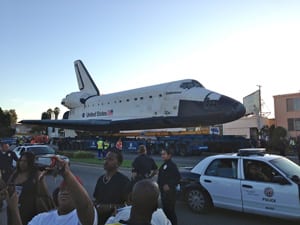
Life on Mars? (Image by
MelissaBowersock
on Flickr.)
 Written by Cassy Fiford, a recent graduate from UCL and a science communication intern at the European Planetary Science Congress.
Written by Cassy Fiford, a recent graduate from UCL and a science communication intern at the European Planetary Science Congress.
What might Martian life look like? Not like little green men, according to Dr Lewis Dartnell, a UK Space Agency research fellow who was talking at the European Planetary Science Congress (EPSC) currently being held at UCL. Dr Dartnell is a former member of the Centre for Planetary Sciences at UCL/Birkbeck.
Even the gloomy Monday morning rain did not dampen the spirits of the many scientists who joined the congress at UCL, each counting down until the 2016 launch of ExoMars, a European space mission with the purpose of finding life on Mars. UCL’s Mullard Space Science Laboratory is playing a leading role in the development of ExoMars, including the design of the main camera, which will land with the second ExoMars probe in 2019.
Contrary to the classic Martian stereotype of little green men, Dr Dartnell and his team have focused on microscopic signs of life. They found that certain minuscule biomarkers, chemical ‘fingerprints’ of life, could be able to withstand the hostile conditions of Mars and may be indicative of life on our neighbouring planet. The survival of these man-made biomarkers in a Mars-like environment means the real thing might have survived on Mars and could be detected by the ExoMars programme.
(more…)
Filed under Uncategorized
Tags: Aliens, DNA, European Planetary Science Congress, ExoMars, extra-terrestrial life, Lewis Dartnell, Mars, Mullard Space Science Laboratory, radiation, Space science, Space shuttle
No Comments »
![]() Written by Stephanie Yardley (PhD student, UCL Mullard Space Science Laboratory)
Written by Stephanie Yardley (PhD student, UCL Mullard Space Science Laboratory) Close
Close





